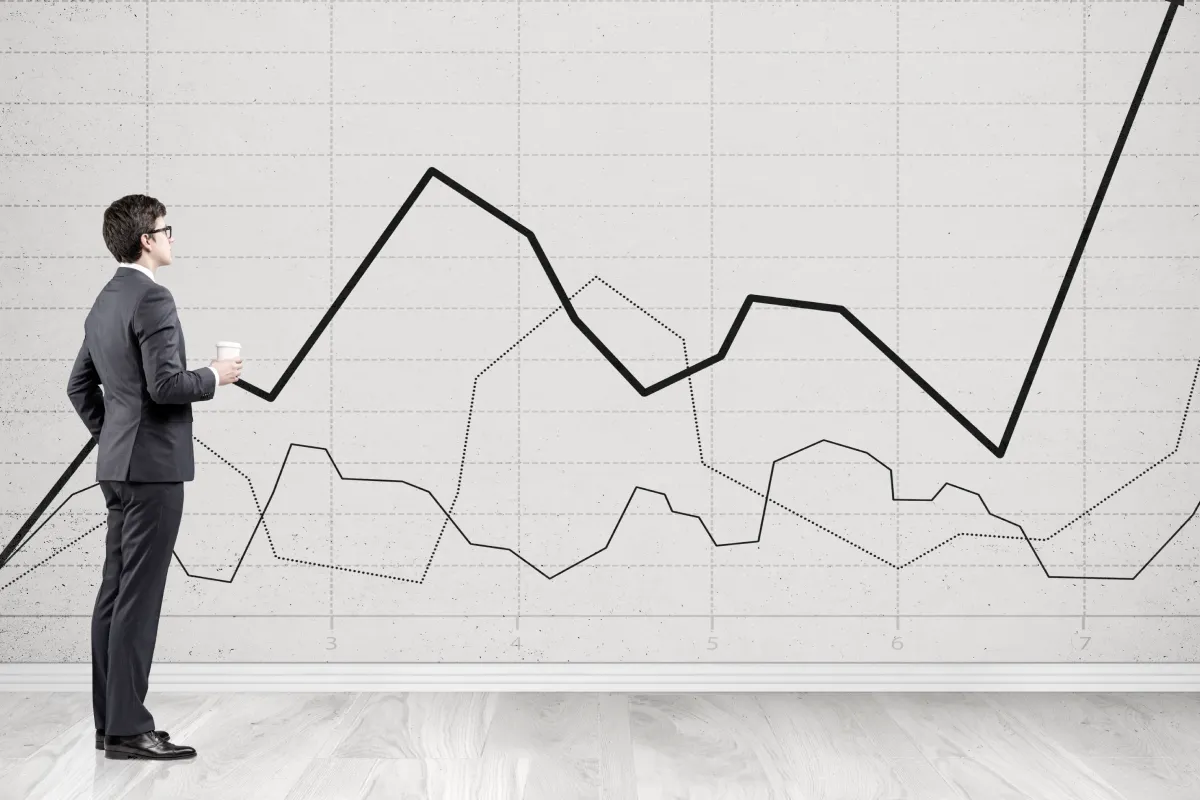
Our 4th of July Sale is Live
Offer Valid July 4 – July 11
Get 50% off Global+ AND data for 3 months—or save 30% on Global+ for the full year
Claim Your DealReady to see the market clearly?
Sign up now and make smarter trades today
Education
July 18, 2024
SHARE
The Ethical Trader: Navigating Grey Areas in Today’s Financial Markets
Since times immemorial, ethics vs. profits has been a hot debate. Especially in financial markets, where it is widely believed that ethics can hinder profitability. Through this article, we will see how ethical traders subside this myth and earn substantial long-term gains.
Taking examples of renowned market investors like Warren Buffett, we will understand how you can do the right thing, even when faced with pressures to prioritize short-term gains over long-term integrity. Also, we will discuss the role of advanced market analysis tools like Bookmap in supporting ethical trading practices. Let us begin.
What is Ethical Trading?
In the context of financial markets, ethical trading refers to conducting transactions and investments in a manner that aligns with:
- Moral principles and
- Higher ethical standards.
This type of trading considers the impact of financial activities not only on profit margins but also on:
- Stakeholders,
- Communities, and
- The environment.
It must also be noted that the rise of algorithmic trading has significantly expanded the scope of ethical trading in financial markets. This scope goes even beyond traditional concerns like insider trading and market manipulation.
But why so?
Algorithmic trading refers to the use of computer algorithms to execute trading strategies at high speeds. It has introduced new ethical dilemmas. One key concern is the potential for algorithms to exacerbate:
- Market volatility
and
- Instability
Let us understand better through the 2010 Flash Crash, which serves as a notable example:
The scenario
- During this event, stock prices experienced a rapid and severe decline.
- What followed was a quick recovery.
- Everything happened within a matter of minutes.
The cause
- Algorithmic trading played a significant role in amplifying the volatility.
- Automated systems responded to market conditions in ways that exacerbated the downturn.
Traders must note that transparency and accountability are critical in addressing ethical concerns related to algorithmic trading. Market participants must understand:
- How do algorithms operate?
- What is the potential impact of their actions on market dynamics?
Additionally, global marketplaces also present ethical challenges. This applies particularly to:
- Labor practices
and
- Supply chain management.
While companies may comply with local labor laws, ethical trading requires going beyond legal obligations. It focuses on:
- Ensuring fair wages,
- Safe working conditions, and
- Respect for human rights throughout the supply chain.
For example, a company might legally pay workers the minimum wage in a certain jurisdiction but if that wage is insufficient to cover basic living expenses, it could be considered unethical.
Unethical vs Illegal Trading Activities
It’s essential to differentiate between unethical and illegal trading activities. Read the table below:
| Unethical trading practices | Illegal trading activities |
|
|
Prioritizing Ethics: Building Trust Beyond Profits
The misconception that ethics and profit are mutually exclusive is prevalent in many sectors, including finance and business. Some argue that prioritizing ethical considerations can:
- Hinder profitability or
- Limit growth opportunities.
However, this view overlooks the long-term benefits of ethical business practices. Let us take the example of Warren Buffett’s investment philosophy and understand how ethical considerations can lead to substantial long-term gains.
About Warren Buffett
- Buffett is often regarded as one of the most successful investors of all time.
- He built his wealth by focusing on fundamental analysis.
- He mostly invested in companies with strong ethical foundations.
The Buffett Approach
- One key aspect of Buffett’s approach is his emphasis on investing in businesses that, he understands and believes, have a durable competitive advantage.
- This strategy involves thoroughly evaluating a company’s:
- Management team,
- Business model, and
- Long-term prospects.
- Importantly, Buffett looks for companies that demonstrate ethical leadership and integrity in their operations.
How Prioritizing Ethical Considerations Helped Buffett?
- Buffett always aimed to invest in companies that are more likely to:
- Maintain stable growth and
- Generate sustainable profits over time.
- Companies with strong ethical cultures have better relationships with customers, employees, and other stakeholders.
- This strong culture leads to higher levels of trust and loyalty.
- In business terms, this trust translates into increased:
- Market share,
- Pricing power, and
- Long-term shareholder value.
The Berkshire Hathaway Success Story
- Berkshire Hathaway is a conglomerate led by Buffett.
- Its portfolio includes a diverse range of businesses, from insurance and utilities to manufacturing and retail.
- Buffett has always remained committed to:
- Ethical operations and
- Responsible corporate governance.
- This approach has helped the company:
- Whether economic downturns and
- Outperform market benchmarks over the long term.
How to Build an Ethical Trading Strategy

To build an ethical trading strategy, it is necessary to align investment decisions with ethical principles and values. Let us understand the process through simple steps:
Step I: Define Ethical Guidelines
- Start by establishing clear guidelines.
- Understand what constitutes ethical behavior in trading scenarios.
- This usually involves defining specific principles or values that guide investment decisions, such as:
- Transparency,
- Fairness,
- Sustainability, and
- Respect for human rights.
- Consider adopting industry standards or frameworks for ethical investing, such as:
- The Principles for Responsible Investment (PRI) or
- The United Nations Global Compact.
- By adopting these standards, you will get a structured approach to ethical decision-making.
Step II: Conduct an Ethical Risk Assessment
- Evaluate the potential ethical risks associated with different investment opportunities.
- Don’t forget to include environmental, social, and governance (ESG) factors.
- Identify industries or companies with significant ethical concerns.
- You can specifically look for controversial activities like:
- Tobacco production,
- Arms manufacturing, or
- Environmental degradation.
Step III: Integrate ESG Criteria
- Integrate Environmental, Social, and Governance (ESG) criteria into the investment analysis process.
- ESG factors provide a framework for assessing the sustainability and ethical performance of companies.
- Analyze how companies manage environmental risks, such as:
- Carbon emissions,
- Pollution, and
- Resource depletion.
- Evaluate their social impact on issues like:
- Labor practices,
- Human rights, and
- Community engagement.
Step IV: Screen Investments
- Screen potential investments based on their alignment with:
- Ethical guidelines and
- ESG criteria.
- Exclude companies or industries that:
- Fail to meet minimum ethical standards or
- Pose significant ethical risks.
- Consider implementing negative screening.
- This will help you avoid investing in companies involved in activities deemed unethical or harmful to society.
Let us see through an example of how integrating ESG factors into investment analysis can enhance ethical trading outcomes:
- Say an investor is evaluating two companies in the automotive industry:
| Company A | Company B |
Company A has a strong track record of:
|
Company B has been implicated in environmental scandals. It has a history of labor violations and lacks transparency in its governance practices. |
- By integrating ESG criteria into the investment analysis, the investor decides to:
- Invest in Company A and
- Exclude Company B from consideration.
- Over time, Company A’s commitment to ESG factors lead to:
- More resilient performance and
- Positive social impact.
- The trader enjoys comparatively better trading outcomes by investing in Company A.
Tools and Resources for Ethical Trading
To perform ethical trading, traders can use various tools and resources. Using them could ensure:
- Transparency,
- Fairness, and
- Integrity in their trading activities.
One such tool is an advanced market analysis tool, Bookmap. It enables traders to gauge the depth of the market (DOM) and perform market liquidity analysis. Furthermore, Bookmap offers a liquidity heatmap, which is a particularly valuable feature for ethical trading.

Using it, traders can:
-
- Gain a transparent view of the market,
- Visualize the distribution of liquidity at different price levels,
- Gain insights into where buying and selling interest is concentrated,
- Assess market depth, and
- Anticipate potential price movements more accurately.
Owing to increased transparency, traders can prevent themselves from engaging in manipulative practices like spoofing or layering. They gain a clear view of genuine buying and selling interest in the market.
Let us understand better through an example,
-
- A trader is considering a stock of Company XYZ.
- The current market price of Company XYZ stock is $100 per share.
- The trader observes Bookmap’s liquidity heatmap.
- They notice a significant concentration of buy orders totaling 10,000 shares at the $100 price level.
- This indicates strong buying interest in the market for Company XYZ stock.
Now, Let us assume that each of these buy orders represents real investors willing to purchase Company XYZ shares at $100 per share. Therefore, the total value of these buy orders is:
- 10,000 shares x $100 per share = $1,000,000
Armed with this information,
- The trader decided to enter a long position in Company XYZ.
- They decide to buy 1,000 shares of Company XYZ at $100 per share.
The Ripple Effects of Ethical Trading
It is pertinent to note that individual commitment to ethical trading has significant ripple effects. These often extend beyond individual transactions. Let us see how:
- Market Signal and Demand
-
-
- When individual traders prioritize ethical trading, it increases the demand for ethically traded assets.
- This increased demand encourages companies to adopt more sustainable and socially responsible practices to attract investment.
-
- Influence on Corporate Behavior
-
-
- Ethical trading practices encourage companies to follow ethical conduct in their operations.
- Such companies often:
- Attract more investors.
- Access lower-cost capital.
- Build stronger relationships with:
- Customers,
- Suppliers, and
- Other stakeholders.
-
- Creation of Ethical Investment Products
-
- The growing demand for ethical trading has led to the development of a wide range of ethical investment products.
- These products mainly include:
- Socially responsible investment (SRI) funds, and
- Environmental, social, and governance (ESG) funds.
- Such ethical investment vehicles allow investors to allocate capital to companies that meet specific ethical criteria.
Overcoming Ethical Challenges

Several traders often face common ethical challenges, such as the pressure to achieve short-term gains at the expense of long-term integrity. Further, they also bear one significant dilemma, which is the ethical considerations surrounding short selling. Let us understand these challenges individually:
| Aspects | Pressure for Short-Term Gains | Dilemma of Short Selling |
| Meaning |
|
|
| Negative Impact |
|
|
How traders can overcome these challenges and make ethical decisions?
- Conduct Thorough Research
-
- Before engaging in short selling or any trading strategy, conduct comprehensive research.
- Grasp the essential elements that drive market movements.
- Avoid baseless speculation or relying solely on short-term market trends.
- Practice Risk Management
-
- Implement robust risk management practices.
- This implementation will help you mitigate the potential negative effects of short selling or other high-risk trading strategies.
- Set clear risk limits.
- Diversify your portfolio.
- Be prepared to exit positions if market conditions deteriorate.
- Align with Ethical Principles
-
- Align your trading decisions with ethical principles and values that prioritize:
- Fairness,
- Honesty, and
- Integrity.
- Consider the ethical implications of your actions on other market participants and society as a whole.
- Align your trading decisions with ethical principles and values that prioritize:
Conclusion
Ethical trading is not just a moral imperative; it’s also a strategic advantage in the long run. Traders who prioritize ethics contribute to a healthier market environment, where transparency, integrity, and trust are critical. Also, ethical trading practices benefit individual traders by enhancing reputation and long-term success.
Furthermore, advanced market analysis tools like Bookmap provide valuable support for ethical trading practices. These tools offer transparency and fairness in market analysis and decision-making. Do you wish to learn more? Read our exclusive article – What a Trader Has to Know About ICO. A Market Like Nothing Else Before!
